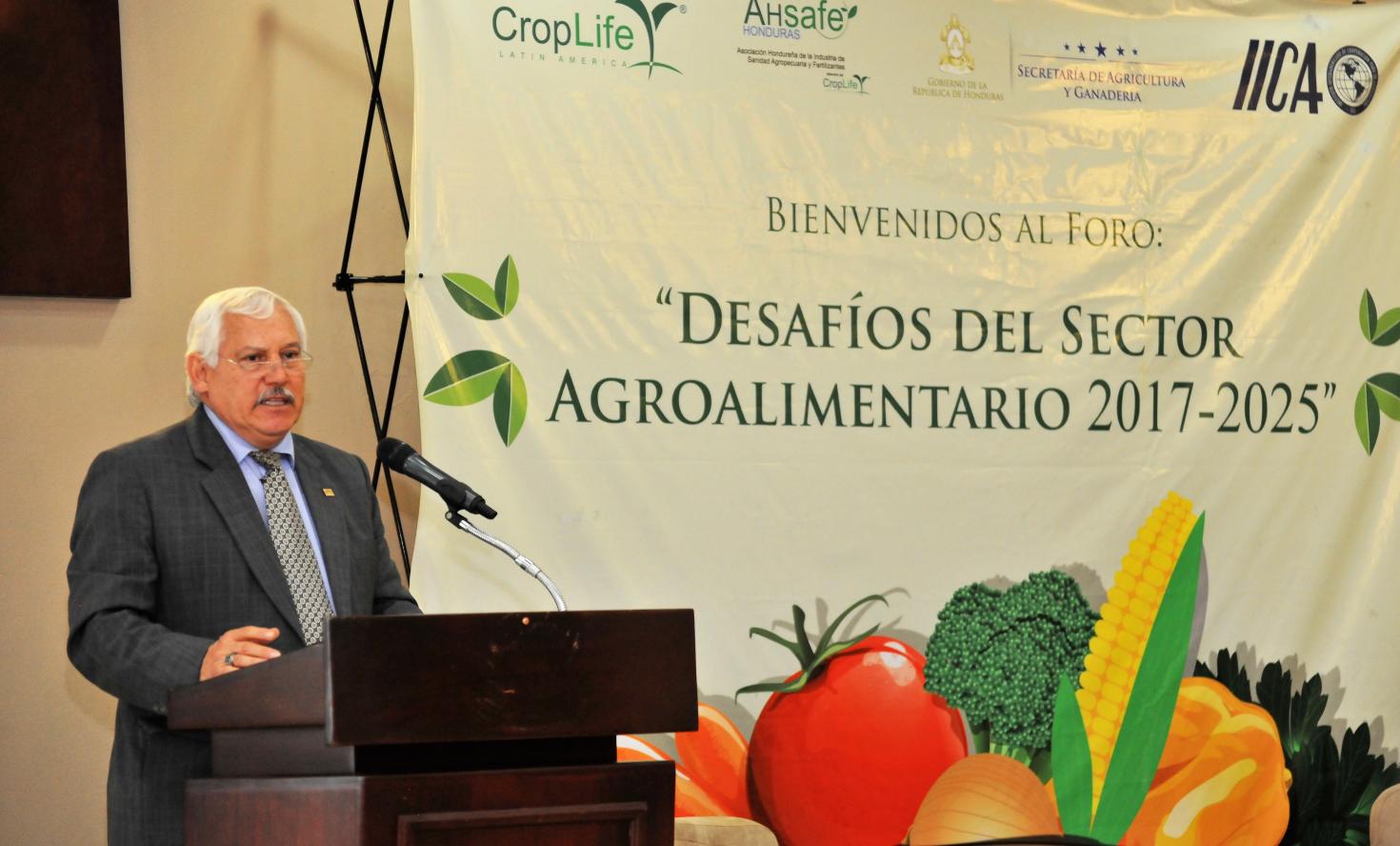The Director General considers it essential that more resources be directed toward improving research, enhancing information technologies, and expanding the number of specialists in agriculture.

San Jose, 25 January 2017 (IICA). Victor M. Villalobos, Director General of the Inter-American Institute for Cooperation on Agriculture (IICA), outlined a number of challenges that agriculture in Latin America and the Caribbean (LAC), and the rest of the world, must overcome. He pointed to the direction in which the sector should go to become more productive and to meet food demands all around the world.
In his estimation, more resources should be allocated to research, development, and innovation (R+D+I); better use should be made of biotechnology, nanotechnology, geointelligence, information technologies; and more specialists and researchers should be trained. He believes that these actions could make agriculture a more competitive, sustainable, and inclusive activity.
In addition, he pointed to the need to encourage voluntary associations among groups such as the small, medium, and large scale producers, the public and private sectors, and academia. Furthermore, he believes that better public policies are also needed.
He expressed these views during the forum entitled Challenges in the agrifood sector 2017-2025: towards a competitive agriculture, held on January 20 in the city of San Pedro Sula, Honduras.
The Director General stated that the role of LAC in the future of agriculture is transcendental. Accordingly, he explained that this region holds four indispensable elements for production: water, land, people, and institutions. The aforementioned aspects accredit the region to become the world’s food basket. Despite these promising conditions, there are many challenges. Villalobos classified them into four areas:
- demographic: population growth, income fluctuations, and consumer transformation
- climatic: impact of climate change and loss of natural resources
- economic: geopolitical and commercial changes
- social: migration, drug trafficking, ageing producers and discrimination
Water availability is the greatest challenge, he stated. 78% of the accessible fresh water is currently being used but it is becoming ever more scarce each day.
“By 2050 we will require twice the amount of water that was needed in 2002; there will be 2, 000 million more people by that time, thus we cannot continue to produce such a high water footprint”.
As his closing statement, he made an appeal to the participants to make a commitment and to be responsible in this matter. He assured them that although there are challenges, solutions can be implemented to shape a better future for all.
“Agriculture is the most respectable human activity in history, we should feel privileged to be part of the solution”, he emphasized.
Other participants in the meeting were Jacobo Paz, Secretary of Agriculture and Livestock of Honduras; Juan Carlos Álvarez, President of the Honduran Bank for Production and Housing (BANHPROVI); Randal Giroux, Vice-President for Food Safety, Quality and Regulatory Agricultural Supply Chain at Cargill; and Jose Perdomo, President of CropLife Latin America.
More information: evangelina.beltran@iica.int











